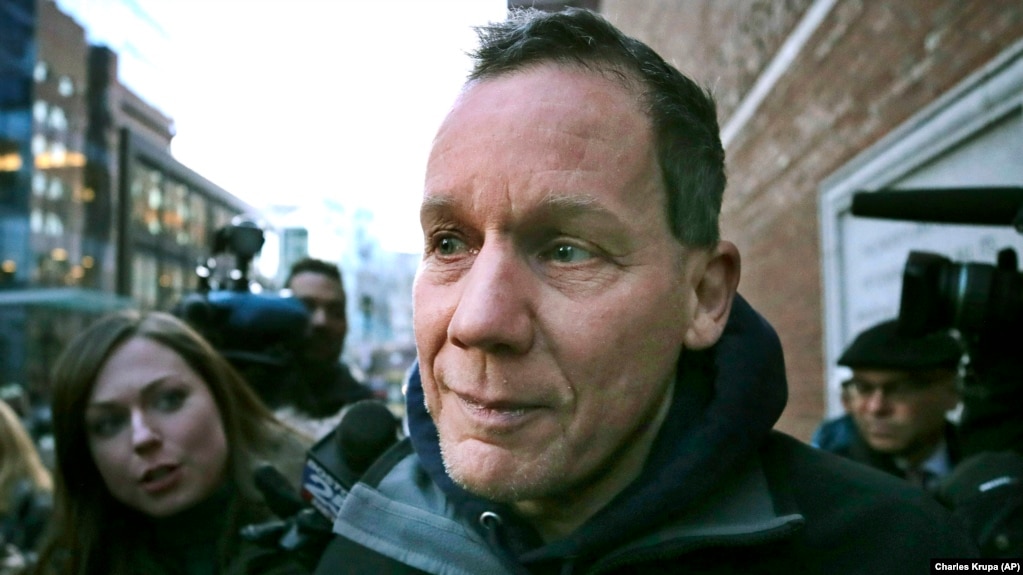Harvard Professor Found Guilty of Lying About Work for China

A Harvard professor of chemistry was found guilty in a Boston court Tuesday of charges related to his business ties to a Chinese university. The charges included making false statements to officials and on tax returns and not reporting his Chinese bank account.
The case was part of a federal program to deal with Chinese influence on U.S. research. The professor, Charles Lieber, is a well-known nanoscientist and the former chairman of Harvard's chemistry department.
Thousand talents program
A federal jury in Boston found Leiber guilty. Prosecutors said that in 2011, Lieber agreed to work with Wuhan University of Technology in China. They charged that he helped get other scientists to take part in China’s Thousand Talents Program through that connection.
Prosecutors say China uses that program to persuade foreign researchers to share their knowledge with the country. Taking part in the program is not a crime. But prosecutors said the 62-year-old Lieber illegally lied to officials about his involvement.
Lieber’s lawyer had argued that prosecutors did not have enough good evidence to prove Lieber's guilt. Lieber, who is battling cancer, sat emotionless as the court announced the decision.
'China Initiative'
Lieber was charged in January 2020 as part of the U.S. Department of Justice's effort called the "China Initiative.” It began during former President Donald Trump's administration to oppose suspected Chinese economic spying and stealing of research. President Joe Biden's administration has continued the effort although the Justice Department has said it is reconsidering its methods.
Foreign Ministry spokesperson Zhao Lijian said China manages such exchanges along the same lines as the U.S. and other countries. Critics say the U.S. efforts harm academic research, discriminate against Chinese researchers and make some scientists afraid.
Earlier this year, a judge declared a Tennessee professor not guilty following a mistrial. Government lawyers also dropped charges against six other researchers.
Lieber denied his involvement in the Thousand Talents Program when asked by officials of U.S. agencies, including the U.S. Defense Department. The National Institutes of Health had provided him with $15 million in research money.
'Young and stupid'
After his arrest, Lieber told FBI agents that he was "younger and stupid" when he linked up with the university in Wuhan. He said he had believed his collaboration would improve his career.
Lieber also hid his income from the Chinese program. This included $50,000 a month from the Wuhan University of Technology, up to $158,000 in living expenses and more than $1.5 million in research money, government lawyers said.
In exchange, they said, Lieber agreed to publish research reports, organize international conferences and seek patents for the Chinese university.
Chinese Foreign Ministry spokesperson Zhao Lijian said U.S. agencies and officials should not "stigmatize" such exchange programs. He said they should do something that helps China-U.S. cooperation and people-to-people exchanges instead.
Hundreds of teachers and researchers at Stanford, Yale, Berkeley, Princeton, Temple and other top universities have signed letters to U.S. Attorney General Merrick Garland. They called on him to end the investigative effort.
The university professors and others said the effort harms the nation's competitiveness in research and technology and makes it harder to get foreign researchers. The letters also criticize how the investigations have looked at Chinese researchers.
Lieber has been on paid administrative leave from Harvard since being arrested in January 2020.
Words in This Story
mistrial – n. a trial that is not valid because of an error or because the jury is unable to decide a verdict
collaboration –n. to work with another person or group in order to gain or do something
career –n. a job or profession that someone does for a long time
patent – n. an official document that gives a person or company the right to be the only one that makes or sells a product for a certain period of time
stigmatize – v. to describe or regard (something, such as a characteristic or group of people) in a way that shows strong disapproval
What do you think of the court’s decision for the Harvard professor? We want to hear from you. Write to us in the Comments Section.